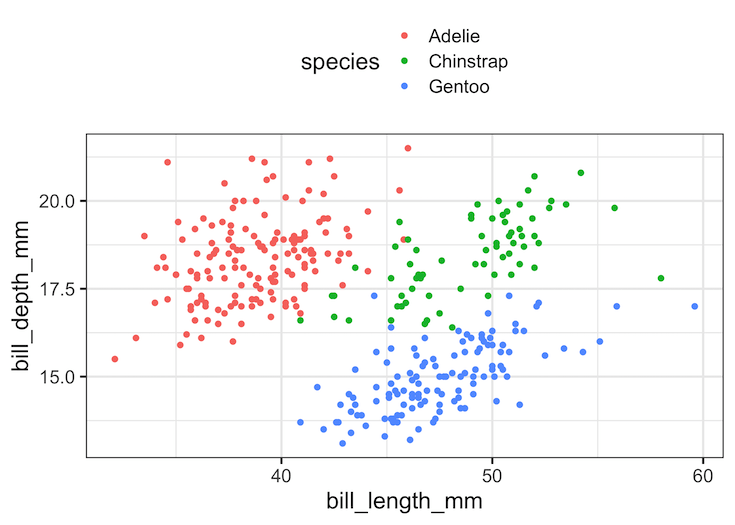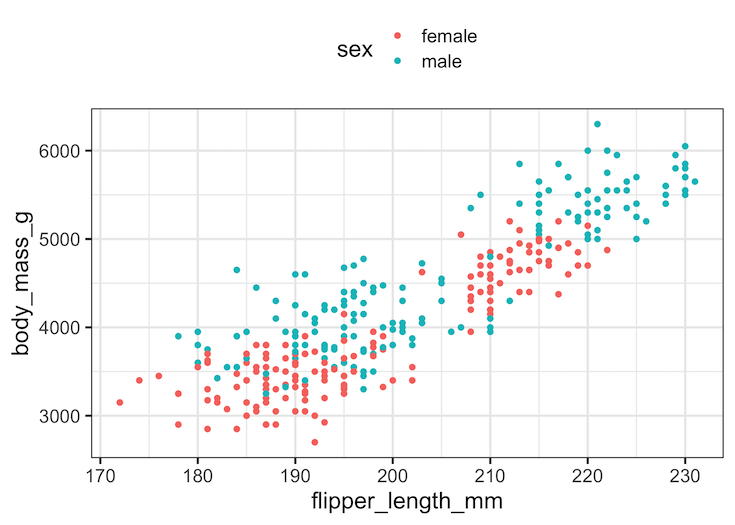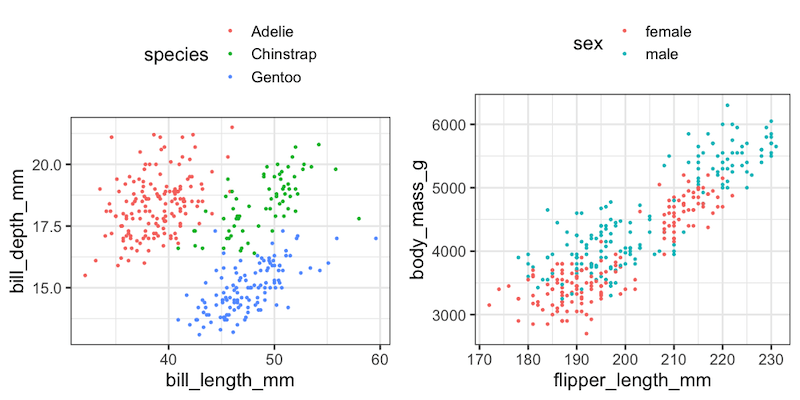In this tutorial, we will learn how to place two plots made with ggplot2 side by side. In R, we have multiple solutions to combine plots into a single plot. Here, we will use R Package gridExtra’s function grid.arrange to combine two plots side by side.
Firs, let us load the packages needed and palmer penguin dataset to make two plots separately.
library(tidyverse) library(palmerpenguins) theme_set(theme_bw(16))
Our data looks like this.
head(penguins) ## # A tibble: 6 x 8 ## species island bill_length_mm bill_depth_mm flipper_length_… body_mass_g sex ## <fct> <fct> <dbl> <dbl> <int> <int> <fct> ## 1 Adelie Torge… 39.1 18.7 181 3750 male ## 2 Adelie Torge… 39.5 17.4 186 3800 fema… ## 3 Adelie Torge… 40.3 18 195 3250 fema… ## 4 Adelie Torge… NA NA NA NA <NA> ## 5 Adelie Torge… 36.7 19.3 193 3450 fema… ## 6 Adelie Torge… 39.3 20.6 190 3650 male ## # … with 1 more variable: year <int>
Let is make a scatter plot and store the plot in a variable. Here we have made a scatter plot with legend on top of the plot such that the values of the legend is arranged in a single column.
p1 <- penguins %>% ggplot(aes(x=bill_length_mm, bill_depth_mm, color=species))+ geom_point()+ theme(legend.position="top")+ guides(color=guide_legend(ncol=1)) p1

Let us make second plot that we want to combine with the first plot we made.
p2 <- penguins %>% drop_na() %>% ggplot(aes(x=flipper_length_mm, body_mass_g, color=sex))+ geom_point()+theme(legend.position = "top")+ guides(color=guide_legend(ncol=1)) p2

Now we have two plots ready and we can use gridExtra’s grid.arrange() function to combine the two plots. To place the plots side by side, we specify the number of columns to be “2”.
gridExtra::grid.arrange(p1,p2, ncol=2)




